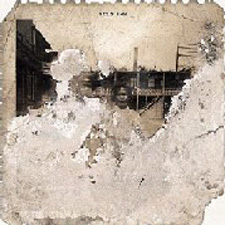I had a chance recently to hear Jonathan Kozol speak. If you ever get such a chance, take it. He is magical in person.
Kozol is 60, a Boston native, and grew up along the well-trodden path of the Boston brahmin: Harvard University, Rhodes Scholar at Oxford University, four years writing in Paris, and ready to go to graduate school in 1964 when the Civil Rights movement caught fire and inspired Kozol to join the battle.
Thousands of young Northerners descended on Mississippi to fight segregation. At least three of them died there.
But Kozol didn't go to Mississippi. He went across Boston, from Harvard Square, to Roxbury. He went to the A.M.E. church and asked what he could do to help. Soon he was teaching summer school reading to dozens of inner-city children. He went to work as a substitute teacher in Boston's public school system. He was fired two years later for reading Langston Hughes to fourth-graders.
But he kept working, writing, and teaching in New York and Boston inner city public schools. A lifetime later, he's still at it. He has spent a great deal of time in one particular district in the South Bronx. You can read about it in his last two books.
He spoke of Morris High School, in the South Bronx, where there are 1,200 ninth-graders. If the present is like the past, 90 will reach 12th grade, and 65 will graduate. And while people celebrate the reduction of the symbols of the Confederacy in Georgia and South Carolina as civil rights victories, Kozol's report from his front in the war is rather more grim.
The average family income of the children he works with is $10,000 a year. A quarter of the children have chronic asthma, which they treat with inhalers they buy illegally from drug dealers. They know hunger, AIDS and murder like you know your next-door neighbors.
And their "price tag" is $8,000 -- that's how much the state spends to educate them each year (take NYC cost of living into account when comparing to your town). If they lived in a typical white suburb of New York City, their price tag would be $12,000; in a wealthy town on Long Island, $18,000.
"So, we say in church and in synagogue ... we say all children are of value in the eyes of God," Kozol said here. "And in the eyes of God, I'm sure they are. But not in the eyes of America. In the eyes of America, children come into public schools with price tags printed on their foreheads. The ones I write about are inexpensive children, cheap children."
And he also said this: "Whenever I go into a school and don't see any white children anywhere, I think, 'this is segregation.' And so I write in my books that these are segregated schools. Some conservatives attack me because I don't give a lot of statistics."
So he went and got statistics.
"In this district, there are 11,000 elementary school children. Of those 11,000 children, last year, exactly 22 were white. Now, I'm not terrific at arithmetic ...but I can do long division. That is a segregation rate of 99.8 percent. So two-tenths of 1 percent marks the difference between legally enforced apartheid in the South 50 years ago, and socially and economically enforced apartheid in New York today."
Kozol said you go to any urban school in America, and "you look at the faces of the children, you look in their eyes, and you try to tell yourself that this post-modern and millennial apartheid is what all our martyrs died for."
So, what flag do we run down to fix this? New York's?
And do the people who know so much about what's going on in Mississippi's schools know what's going on in the ones on the other side of the town where they live and write?

